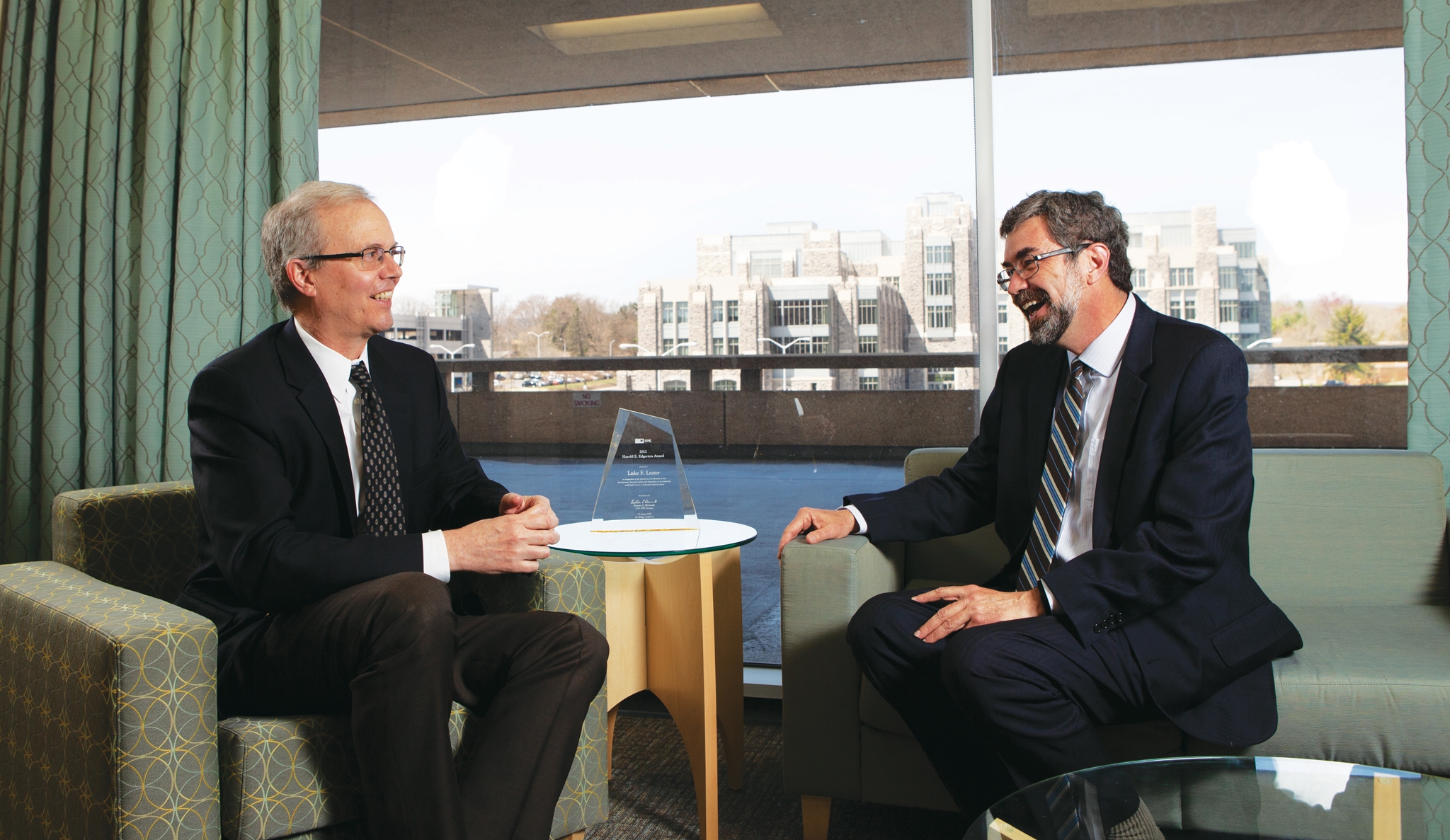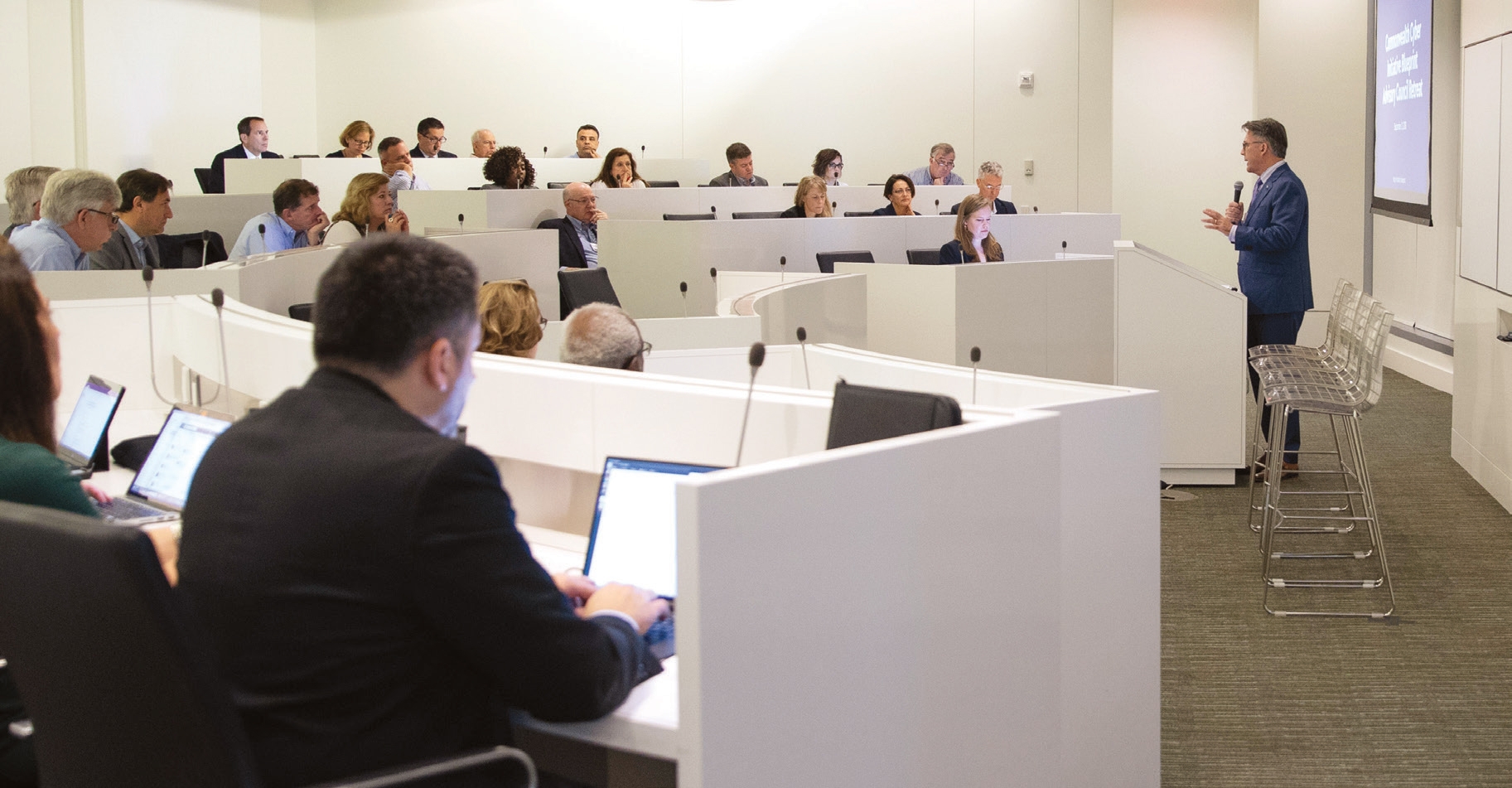ECE Expanded, Expedited, and Enriched
Amazon plans accelerate ECE growth in D.C. region

For about 50 years, ECE has been steadily growing a presence in the greater Washington, D.C. region. In November, Amazon declared its intent to build an Arlington headquarters, Virginia Tech announced its Innovation Campus in Alexandria, and the department’s long-range plans sprang into the foreground.
ECE currently has 18 faculty members already based in Arlington and Falls Church, and it graduates about 10 students a year from the Northern Virginia location.
“Independently of Amazon arriving, our plan was to grow to 20 faculty members in the next year or two,” said Luke Lester, ECE department head. “Now I anticipate further personnel growth that will allow us to significantly increase the number of master’s and Ph.D. degrees that are conferred in this location.”
Master of Engineering Program
Expanding the Master of Engineering (MEng) Program in the Washington, D.C. region is central to this goal, said Lester. Beginning in the fall, the ECE department is offering MEng degrees that provide a curricular emphasis in three key ECE technology areas: cybersecurity, machine learning, and electronic power systems. The coursework and projects will be led by faculty members based in Northern Virginia, leveraging the research and teaching strength in both locations.
These professionally oriented degrees offer graduate students a strong academic foundation culminating in a project-based learning experience, which prepares them to meet the demands of the growing tech hub.
“You hear a lot about people writing apps and doing data analytics, computer science, and artificial intelligence,” said Lester. But the reality, he said, covers a lot more ground.
“Data centers need to get more energy efficient. Power electronics and the management of power is critical,” said Lester. “The physical layer matters—the bricks and mortar of the smart city, the components and racks of equipment that support the Internet of Things.”
Opening a physical location within walking distance of Amazon, the National Science Foundation, and other innovation hot spots will draw Virginia Tech engineers into an abundance of opportunities that play to ECE’s specific strengths and the university’s Destination Areas.
CPES
A Center for Power Electronics Systems (CPES) laboratory is already up and running in Arlington, with four graduate students and three faculty members on site full time. The facilities, which are still being assembled, include offices and a modern power electronics lab that showcases the cutting-edge nature of the work, with resources to house at least 20 graduate students and up to five faculty members with supporting staff.
Hume Center
Focused on the challenges of cybersecurity, autonomy, and resilience in the context of national and homeland security, the Ted and Karyn Hume Center for National Security and Technology is already a university-wide center with a presence in the Virginia Tech Research Center—Arlington.
Gearing up for growth
By some metrics, the Virginia Tech College of Engineering is the fourth largest provider of engineering graduates in the nation—the ECE department alone has 94 faculty members.
“The department’s strong presence in both Blacksburg and the greater Washington, D.C. region gives us a unique opportunity to offer faculty, staff, and students a choice of two very different, but very connected, areas,” said Lester. “It’s a great opportunity for the department. Right now, we graduate close to 500 undergraduate and graduate degrees per year between the Electrical Engineering and Computer Engineering degree programs. Five years from now, we are projecting that number will surpass 700.”
To accommodate the growth spurt, the department is hiring. The D.C. region program will initially be supported by three staff members—an operations manager, a pre-award administrator, and an administrative assistant—along with two program directors (Blacksburg-based and D.C.-based) who start in July.
ECE’s expanded program will be marketed to young professionals, among others, who are trying to secure and improve career prospects in the greater Washington, D.C. region. Currently, domestic applicants constitute only 15 percent of MEng applicants, said Paul Plassmann, ECE assistant department head and graduate program director.
As added incentive, MEng students focusing on cybersecurity, electronic power systems, or machine learning can accelerate their degree and complete the minimum 32 credit hours in a 12-to-15-month period. This accelerated option will initially allow ECE to make three of its strong research areas more visible and accessible to potential students and collaborators.
In addition, according to director of ECE graduate studies Paul Plassmann, the vision for the program leverages all academic options. These include one- and two-year students, undergraduate/graduate-program students, part-time professionals, and those who start in the MEng program but are wooed by research and the Ph.D. program—which, historically, is about 25 percent of ECE’s MEng students.
Fulfilling the land grant mission
Many universities, especially land grant universities, were established “out on the land,” away from cities, explained Lester. Now these universities are looking toward major metro areas as a way to pool resources and concentrate talent.
“Using the expertise and credibility we already have, we can leverage the state’s investment and the university’s investment to bring about a world-class research effort,” said Lester.
The tether between Blacksburg and the greater Washington, D.C. region will benefit both areas, broadening options for research opportunities, heightening the program’s profile, and increasing student interest and retention in both locations.



